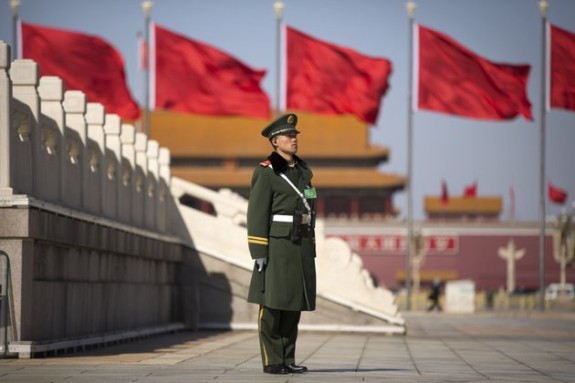Exposing China’s organ harvesting
Measures aim to bring our attention to inhumane practice.
StarTribune
By JENNIFER ZHANG, May 2, 2015

Recently introduced in the Minnesota Legislature is a joint resolution regarding forced organ harvesting and transplant abuse in China.
H.F. 2166, introduced by Rep. Phyllis Kahn, DFL-Minneapolis, and S.F. 2090, introduced by Sen. Alice Johnson, DFL-Blaine, express “concern over persistent and credible reports of systematic, state-sanctioned, forced organ harvesting from non-consenting prisoners of conscience, primarily from Falun Gong practitioners imprisoned for their spiritual beliefs, and members of other religious and ethnic minority groups in the People’s Republic of China.”
I am from mainland China. When I was 18, I was recruited to join the Chinese Communist Party (CCP), and I agreed, out of genuine faith in the goodness of the CCP. I grew up heavily influenced by party propaganda, not realizing it until I came to the United States, where I was able to access uncensored information.
The CCP has tight control over everything within China, and even more so on its members. For years, I had to attend weekly political study and CCP member meetings. Periodically, I had to report to the party about my “thinking” and my “state of mind.” I even had to report what I noticed in others that might not be consistent with the requirements of the party leadership.
The harshest indoctrination, in my experience, happened shortly after the CCP banned Falun Gong in 1999. Falun Gong, a form of qigong, or exercise and meditation, had grown enormously popular in the 1990s, prompting the CCP to institute a policy of persecution.
In order to ensure that everyone in society accepted what was depicted about Falun Gong, all CCP members had to go through a series of studies of published propaganda and were required to make statements showing their “correct” understanding of the issue.
I studied law in college and afterward worked in the court system. Ironically, the major lesson I learned from those experiences is that there is no such thing as rule of law in China.
I worked in both administrative and civil tribunals. I am most familiar with the criminal tribunal. I saw many cases where the interpretation and application of the law were twisted to fit the whims and desires of CCP leaders.
Something horrible I became aware of during my work was the harvesting of organs from death-penalty prisoners. The criminal tribunal where I worked heard criminal cases and rendered sentences, including the capital penalty. Execution was also part of the court’s responsibility.
It was commonly understood that the executed individual would have his organs harvested. Indeed, the Chinese medical community openly admits this.
There is significant evidence that practitioners of Falun Gong are heavily victimized in this way. This evidence can be found online at Doctors against Forced Organ Harvesting.
Now that I have had the opportunity to put all of the pieces together, it has become increasingly obvious to me that the CCP has gone completely overboard with its persecution of Falun Gong, acting shamelessly and ruthlessly.
Once these inhumane crimes are fully revealed, the CCP will not be able to “self-correct,” as was done after the Cultural Revolution.
Perhaps, living outside of China, one may conclude that such a crime is impossible. Having grown up in China, and as a former member of the CCP, I would submit to you that it is not. There is no established rule of law within China, nor any force pushing toward positive change. Any voice that disagrees with party rule is quickly crushed.
External pressure, though, can have an effect. Currently, the CCP is making every effort to conceal this situation from the outside world. It is necessary that these crimes are exposed. I am hoping that my fellow Minnesotans will contact their state representatives and senators, and encourage them to support these resolutions.
Jennifer Zhang lives in Woodbury.
